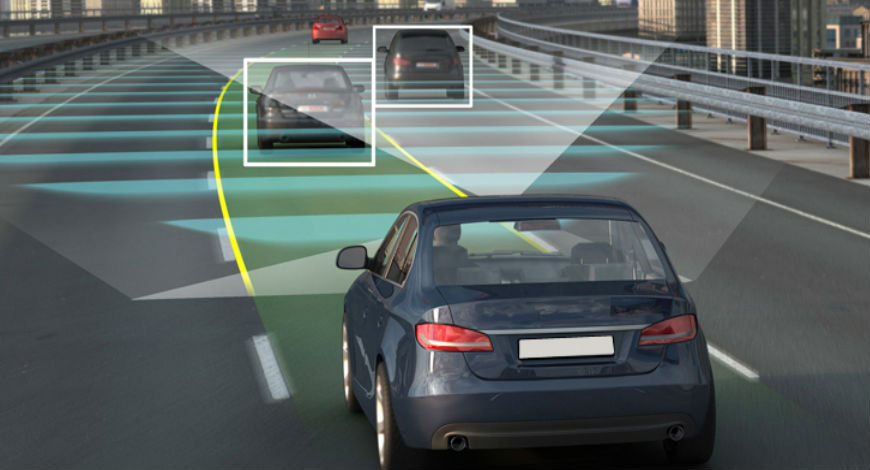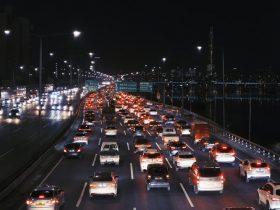Autonomous Mobility has been making increasing inroads across many domains globally. In such a scenario, the traditional fear has been that automation will take away human jobs. But as empirical evidence demonstrated after the Industrial Revolution, while some job categories became redundant, the emergence of technology triggered job creation in other spheres.
Job-loss fears arose when banks were computerising services in India during the late 1980s. Bank unions then struck work. A decade later, it was clear computerisation did not make jobs redundant but actually facilitated faster work for bank employees!
Today, the rise of Artificial Intelligence (AI) and robotics has been stoking similar fears of job losses and redundancy globally. The feeling of déjà vu is but natural. There is no doubt, however, that automation boosts productivity. Thereby, employees achieve more in fewer hours with less effort compared to doing the same work manually. Therefore, it’s time people realise that automation increases better safety, general comfort and productivity rather than the other way around. Besides time, money and resources are also saved.
Consider self-driving vehicles. Uber, Tesla, Google, Amazon and Apple, among others, are all working frenetically in ensuring their self-driving vehicles makes it to the market first. Few On-Demand ride hailing companies has started performing live testing on the roads of Pittsburgh and Singapore for a self-driving taxis – which promises a great future by merging two of the most promising mega trends in mobility- Shared Mobility and Autonomous Driving
Select companies in India are also making efforts to introduce technology for contributing towards self-driving vehicles ecosystems. But some analysts are sceptical that India is ready to allow self-driving vehicles on its streets anytime soon. Moreover, in certain quarters the misconception about automation driving job losses is becoming a regular refrain. Yet, India can definitely be ready to welcome autonomous mobility in general and self-driving vehicles in particular, since the NDA Government has been working on all fronts to promote infrastructure development and modernisation.
Indeed, there’s an inexorable trend towards automation worldwide. As per industry estimates, ADAS (Advanced Driver Assistance Systems) and Industrial Logistics Robotics will comprise a $185 billion market by 2025, rising from $39 billion in 2017. This indicates a CAGR of 21%+. Here, the role of AI is unmistakeable. Benefits include increasing asset utilisation, preserving natural resources, reducing risks, improving efficiencies in time and cost and decreasing pollution levels overall.
For autonomous vehicles in India, good roads and other infrastructure are imperative to make this dream a reality. But other imperatives exist for autonomous vehicles and complete automation in general. Two core prerequisites are driving attitude and habits.
To hasten the pace of automation in automotive and other domains, it’s necessary to realise job losses are not a given as the above examples clarify. Even if job losses occur, these are compensated by employment opportunities elsewhere. As in the case of bank employees, once workers in diverse sectors realise automation can actually benefit them, they would be receptive towards technology in their industries.
The Indian driving conditions are the most challenging ones given there are huge number of edge cases and hence solving a problem here makes it ready for anywhere in the global. Training neural networks for predicting these notorious habits of Indian drivers, who are prone to breaking road safety rules rather than following them is a huge challenge. Drivers in India are known to cut across lanes randomly and break red lights at will. Additionally, trespassers of all kinds could suddenly appear on a supposedly-clear road. After autonomous cars are programmed about unusual behaviour, self-driving vehicles will automatically regulate their speeds even on ‘empty’ roads.
Simultaneously, drivers and pedestrians would need to be educated about autonomous cars and forewarned about avoiding risky road habits practised hitherto before human drivers.
Once current barriers such as lack of infrastructure, bad habits and wrong attitudes are addressed, there is every reason to believe India will be more than ready for self-driving cars and automation across industries.
Job-loss fears arose when banks were computerising services in India during the late 1980s. Bank unions then struck work. A decade later, it was clear computerisation did not make jobs redundant but actually facilitated faster work for bank employees!
Today, the rise of Artificial Intelligence (AI) and robotics has been stoking similar fears of job losses and redundancy globally. The feeling of déjà vu is but natural. There is no doubt, however, that automation boosts productivity. Thereby, employees achieve more in fewer hours with less effort compared to doing the same work manually. Therefore, it’s time people realise that automation increases better safety, general comfort and productivity rather than the other way around. Besides time, money and resources are also saved.
Consider self-driving vehicles. Uber, Tesla, Google, Amazon and Apple, among others, are all working frenetically in ensuring their self-driving vehicles makes it to the market first. Few On-Demand ride hailing companies has started performing live testing on the roads of Pittsburgh and Singapore for a self-driving taxis – which promises a great future by merging two of the most promising mega trends in mobility- Shared Mobility and Autonomous Driving
Select companies in India are also making efforts to introduce technology for contributing towards self-driving vehicles ecosystems. But some analysts are sceptical that India is ready to allow self-driving vehicles on its streets anytime soon. Moreover, in certain quarters the misconception about automation driving job losses is becoming a regular refrain. Yet, India can definitely be ready to welcome autonomous mobility in general and self-driving vehicles in particular, since the NDA Government has been working on all fronts to promote infrastructure development and modernisation.
Indeed, there’s an inexorable trend towards automation worldwide. As per industry estimates, ADAS (Advanced Driver Assistance Systems) and Industrial Logistics Robotics will comprise a $185 billion market by 2025, rising from $39 billion in 2017. This indicates a CAGR of 21%+. Here, the role of AI is unmistakeable. Benefits include increasing asset utilisation, preserving natural resources, reducing risks, improving efficiencies in time and cost and decreasing pollution levels overall.
For autonomous vehicles in India, good roads and other infrastructure are imperative to make this dream a reality. But other imperatives exist for autonomous vehicles and complete automation in general. Two core prerequisites are driving attitude and habits.
To hasten the pace of automation in automotive and other domains, it’s necessary to realise job losses are not a given as the above examples clarify. Even if job losses occur, these are compensated by employment opportunities elsewhere. As in the case of bank employees, once workers in diverse sectors realise automation can actually benefit them, they would be receptive towards technology in their industries.
The Indian driving conditions are the most challenging ones given there are huge number of edge cases and hence solving a problem here makes it ready for anywhere in the global. Training neural networks for predicting these notorious habits of Indian drivers, who are prone to breaking road safety rules rather than following them is a huge challenge. Drivers in India are known to cut across lanes randomly and break red lights at will. Additionally, trespassers of all kinds could suddenly appear on a supposedly-clear road. After autonomous cars are programmed about unusual behaviour, self-driving vehicles will automatically regulate their speeds even on ‘empty’ roads.
Simultaneously, drivers and pedestrians would need to be educated about autonomous cars and forewarned about avoiding risky road habits practised hitherto before human drivers.
Once current barriers such as lack of infrastructure, bad habits and wrong attitudes are addressed, there is every reason to believe India will be more than ready for self-driving cars and automation across industries.
Disclaimer: The views expressed in the article above are those of the authors’ and do not necessarily represent or reflect the views of this publishing house
Anuj Kapuria
Anuj Kapuria is the Founder & CEO at Hi-Tech Robotic Systemz Ltd and the Co-chair of Robotics Society of India.



















